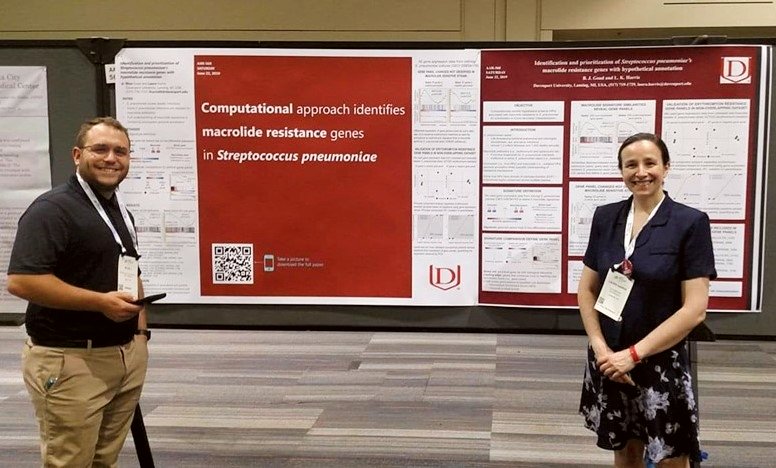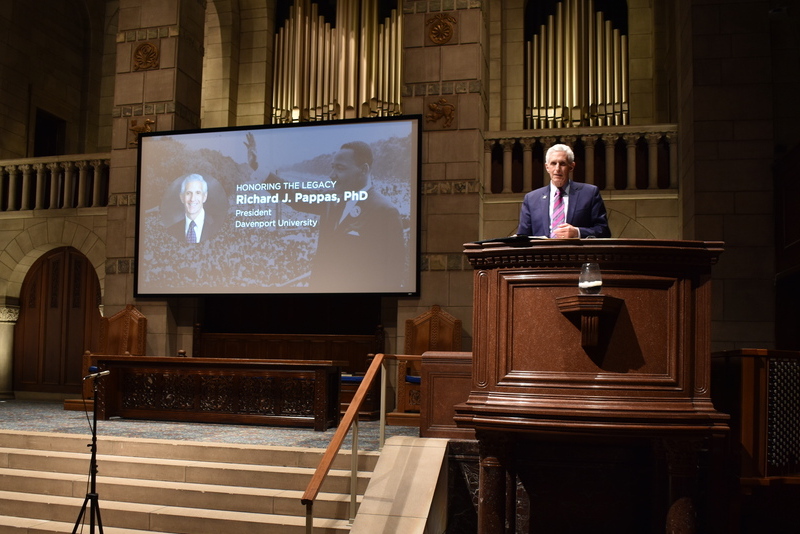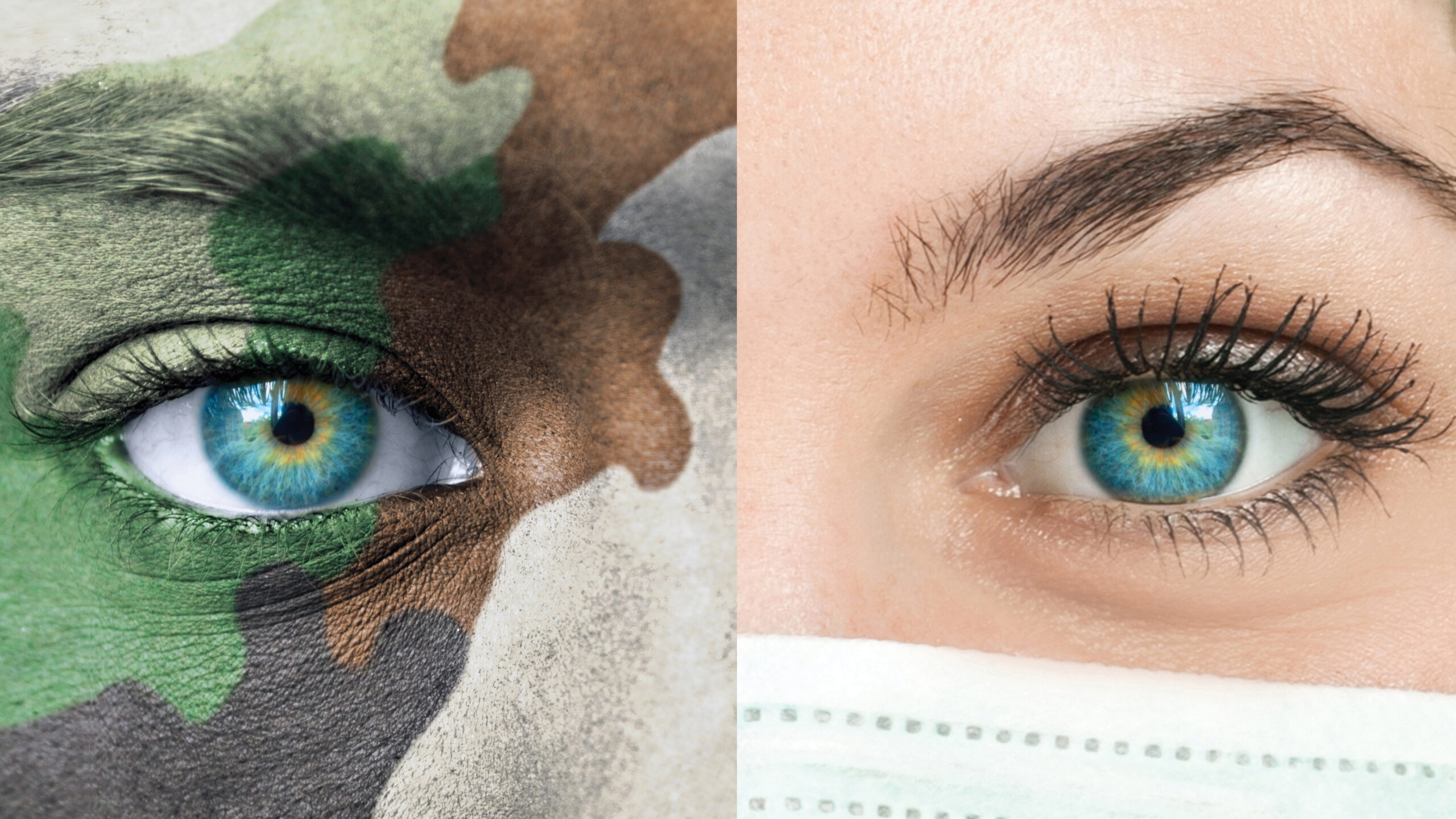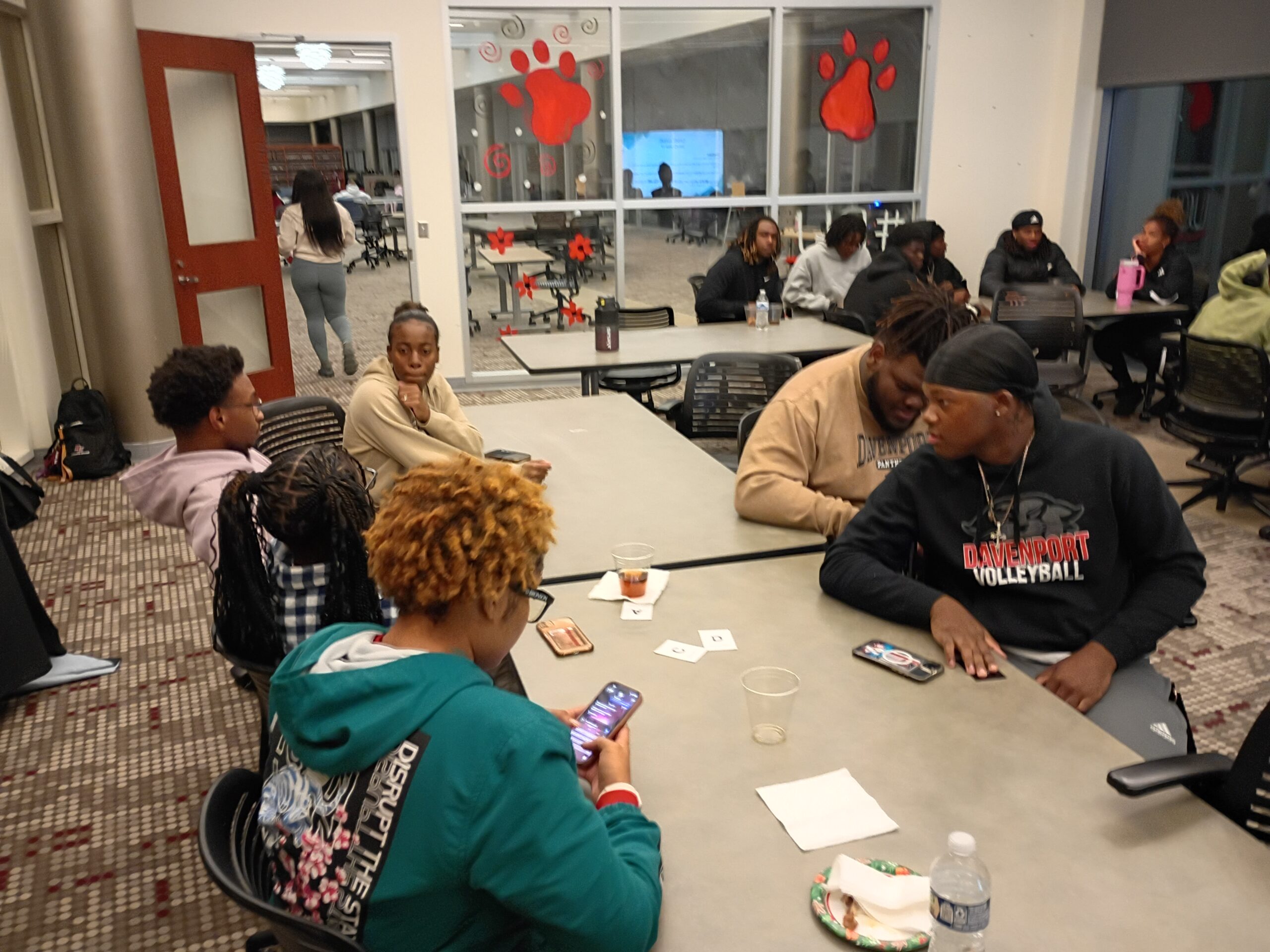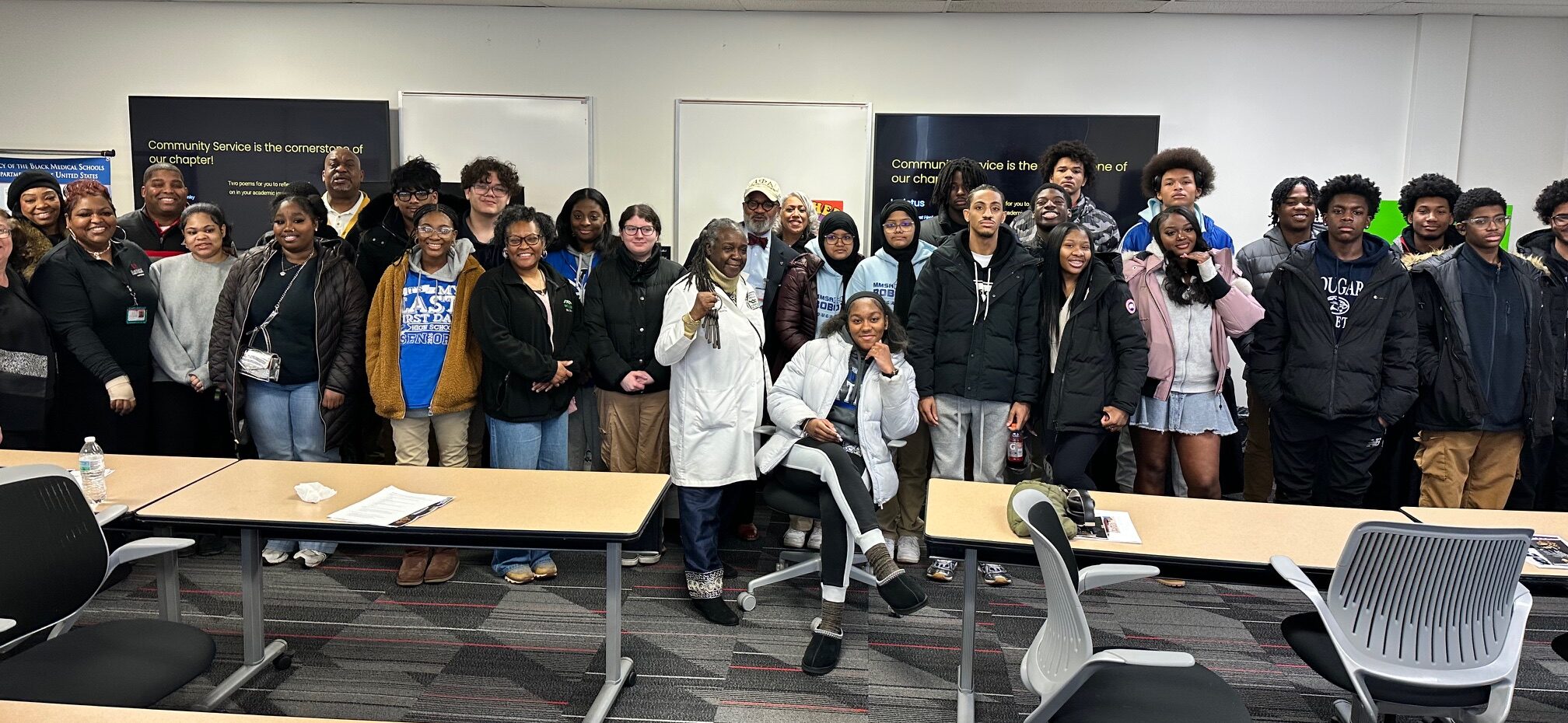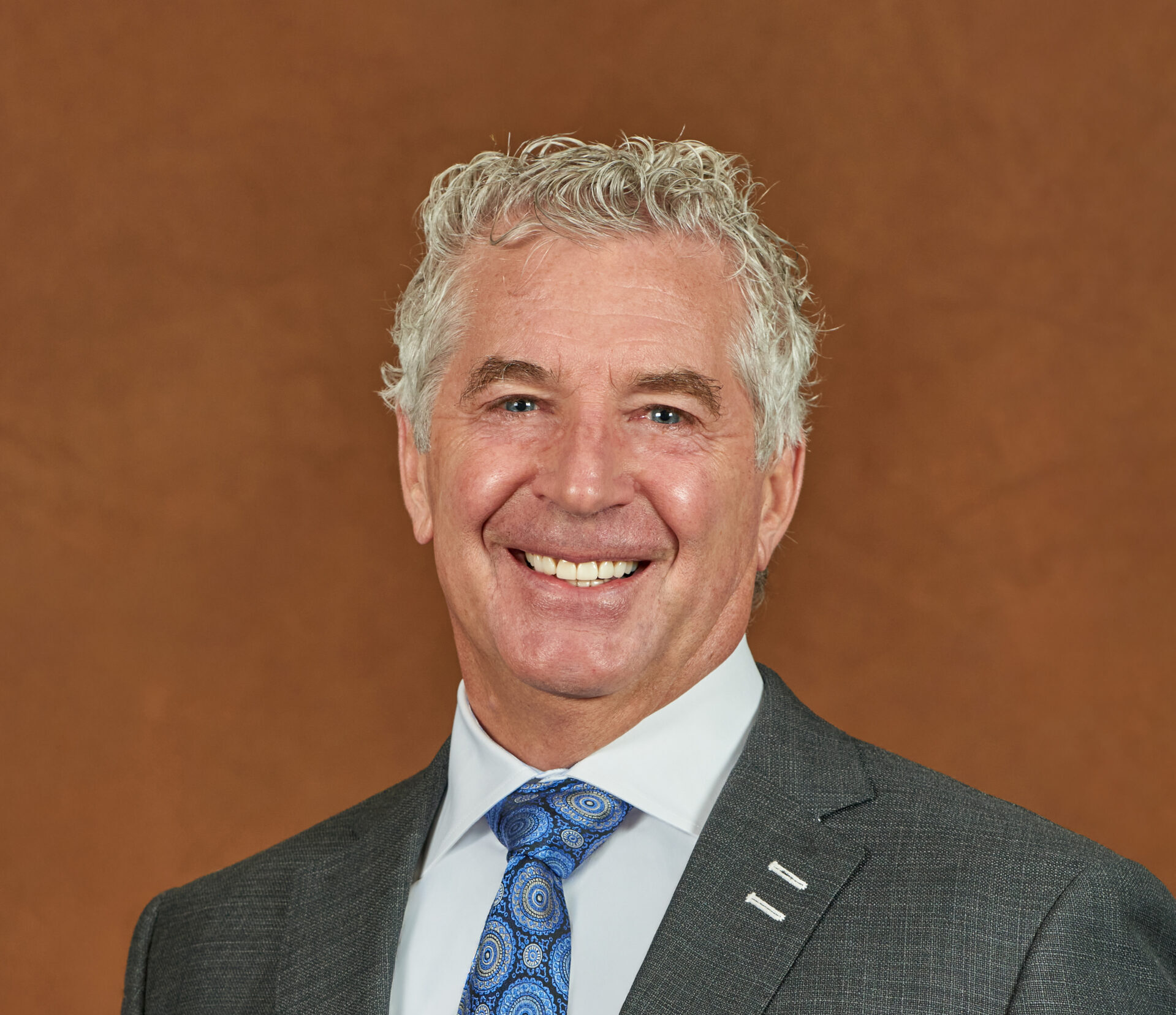Davenport University faculty Laura Harris and pre-nursing student Blue Goad co-authored an international, peer-reviewed paper in December 2018. This summer, Goad and Harris presented their findings at the American Society for Microbiology (ASM) Microbes conference in San Francisco.
ASM has over 30,000 members including researchers, educators and health professionals, and is one of the largest life science societies in the world. Goad’s poster was one of almost 4,000 presented alongside international work.
“This is the first time a Davenport student has presented scientific research at a national conference,” said Harris. “Attending a conference is an excellent way for students to meet future employers from around the world and provides them with an opportunity to impress by sharing their working knowledge of a real-world application. Blue’s poster presentation at ASM Microbes represents a huge milestone for himself and for Davenport University.”
Goad and Harris’ international, peer-reviewed paper is titled, “Identification and prioritization of macrolide resistance genes with hypothetical annotation in Streptococcus pneumonia.” Their computational research introduced a new way to identify genes associated with antibiotic resistance in Streptococcus pneumonia – a bacterial species that can cause many different and potentially life-threatening illnesses.
Streptococcus pneumonia is the most common cause of pneumonia and other serious illnesses such as meningitis. The fact that antibiotic resistant infections have very limited treatment options means Harris and Goad’s work will play an important role in keeping our communities healthy.
While some reasons for antibiotic resistance are well-established, ample understanding is limited. To better understand resistance to common antibiotics, Goad and Harris identify and prioritize macrolide in their research. Macrolide is a common class of antibiotics that are frequently prescribed to treat bacterial infections. The first and best known macrolide is erythromycin.
Through their research, Goad and Harris were able to identify genes associated with antibiotic resistance. These genes have the potential to become effective medications for these resistant and potentially life-threatening infections.
The first step toward therapeutic development is completing experiments to confirm these findings. The experiments are already underway by Harris Interdisciplinary Research, a group of mostly Davenport students including Goad and students from Davenport’s medical laboratory science program. Several members of the Harris Interdisciplinary Research group will share their results at next year’s ASM Microbes conference in Chicago.
Share This Story!
Davenport University faculty Laura Harris and pre-nursing student Blue Goad co-authored an international, peer-reviewed paper in December 2018. This summer, Goad and Harris presented their findings at the American Society for Microbiology (ASM) Microbes conference in San Francisco.
ASM has over 30,000 members including researchers, educators and health professionals, and is one of the largest life science societies in the world. Goad’s poster was one of almost 4,000 presented alongside international work.
“This is the first time a Davenport student has presented scientific research at a national conference,” said Harris. “Attending a conference is an excellent way for students to meet future employers from around the world and provides them with an opportunity to impress by sharing their working knowledge of a real-world application. Blue’s poster presentation at ASM Microbes represents a huge milestone for himself and for Davenport University.”
Goad and Harris’ international, peer-reviewed paper is titled, “Identification and prioritization of macrolide resistance genes with hypothetical annotation in Streptococcus pneumonia.” Their computational research introduced a new way to identify genes associated with antibiotic resistance in Streptococcus pneumonia – a bacterial species that can cause many different and potentially life-threatening illnesses.
Streptococcus pneumonia is the most common cause of pneumonia and other serious illnesses such as meningitis. The fact that antibiotic resistant infections have very limited treatment options means Harris and Goad’s work will play an important role in keeping our communities healthy.
While some reasons for antibiotic resistance are well-established, ample understanding is limited. To better understand resistance to common antibiotics, Goad and Harris identify and prioritize macrolide in their research. Macrolide is a common class of antibiotics that are frequently prescribed to treat bacterial infections. The first and best known macrolide is erythromycin.
Through their research, Goad and Harris were able to identify genes associated with antibiotic resistance. These genes have the potential to become effective medications for these resistant and potentially life-threatening infections.
The first step toward therapeutic development is completing experiments to confirm these findings. The experiments are already underway by Harris Interdisciplinary Research, a group of mostly Davenport students including Goad and students from Davenport’s medical laboratory science program. Several members of the Harris Interdisciplinary Research group will share their results at next year’s ASM Microbes conference in Chicago.
Share This Story!
Stay connected!
Get the latest Davenpost News delivered to your inbox!
Related Stories
Community members gathered at Grand Rapids’ Fountain Street Church on Monday, January 15, to honor the life and legacy of [...]
Davenport University is helping military students move from combat boots to scrubs through its Veterans Bachelor of Science in Nursing pathway, the [...]
Jeff Lumpp was on the fast track to landing his dream job when an opportunity he couldn’t turn down presented [...]
Latest Stories
The path to college isn’t always easy, and for students of color, it is often littered with roadblocks not present [...]
In recognition of Black History Month, Feb. 23 – 26, the Warren campus of Davenport University invited middle and high [...]
Davenport University President Richard J. Pappas, Ed.D., announced that Mark Peters, the CEO of Butterball Farms, Inc. has been appointed [...]

